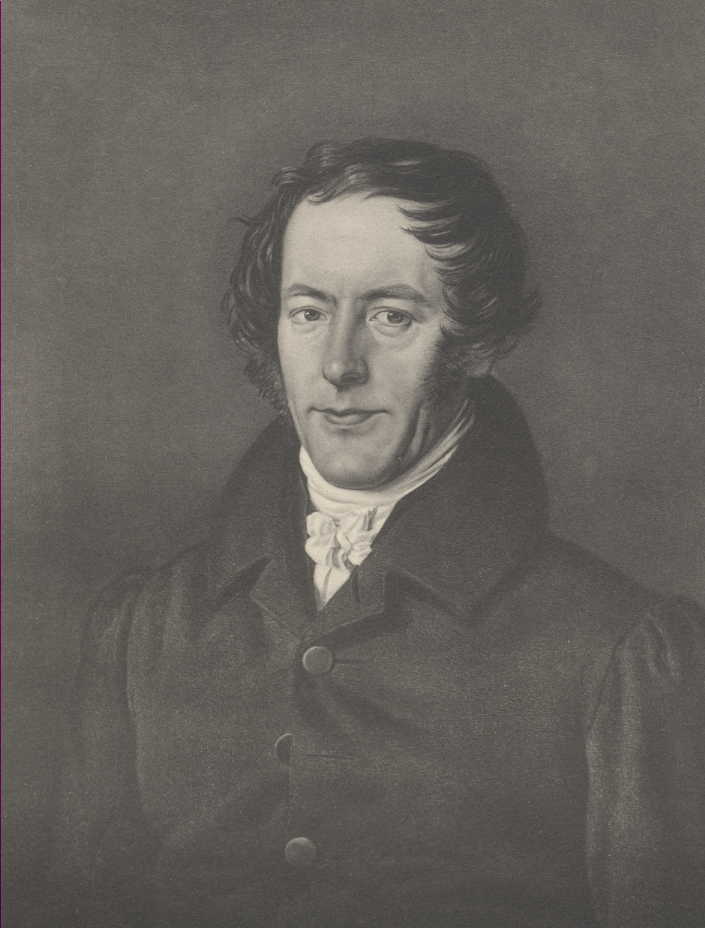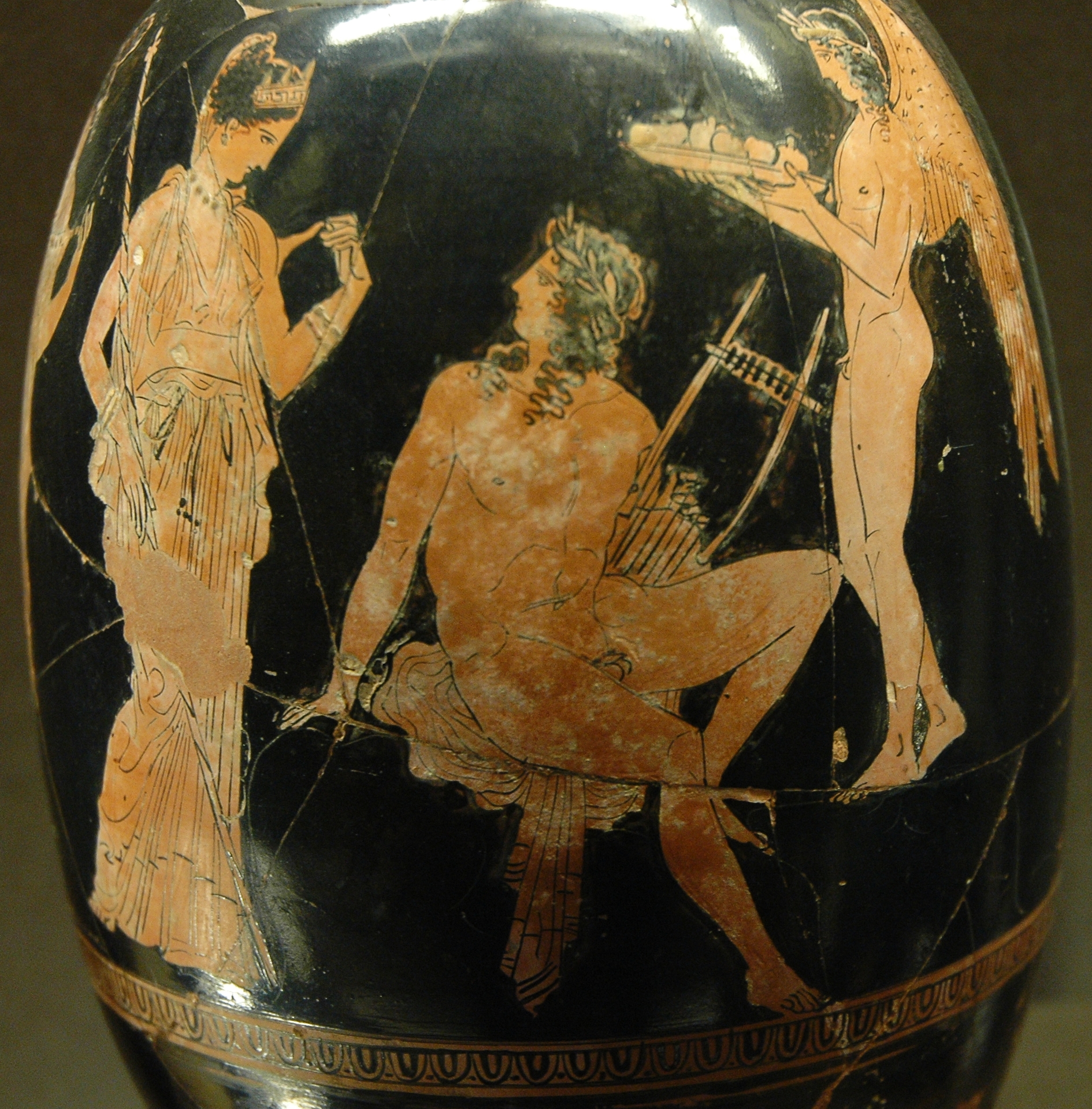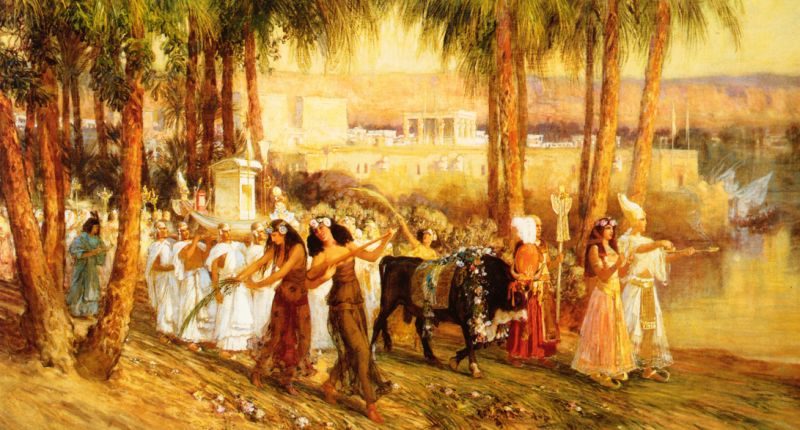|
Thargelia
Thargelia ( grc, Θαργήλια) was one of the chief Athenian festivals in honour of the Delian Apollo and Artemis, held on their birthdays, the 6th and 7th of the month Thargelion (about May 24 and May 25). Essentially an agricultural festival, the Thargelia included a purifying and expiatory ceremony. While the people offered the first-fruits of the earth to the god in token of thankfulness, it was at the same time necessary to propitiate him, lest he might ruin the harvest by excessive heat, possibly accompanied by pestilence. The purificatory preceded the thanksgiving service. On the 6th a sheep was sacrificed to Demeter Chloe on the Acropolis, and perhaps a swine to the Fates, but the most important ritual was the following. Two men, the ugliest that could be found (the Pharmakoi) were chosen to die, one for the men, the other (according to some, a woman) for the women. Hipponax of Colophon claims that on the day of the sacrifice they were led round with strings of figs o ... [...More Info...] [...Related Items...] OR: [Wikipedia] [Google] [Baidu] |
Pyanepsia
Pyanopsia (''Πυανόψια'') or Pyanepsia (''Πυανέψια'') was an ancient Athenian festival held in honor of Apollo in Athens on the 7th day of the month Pyanepsion (October/November). Its name literally means "bean-stewing", in reference to one of the sacred offerings given during this time, and is taken from the Greek words ''πύανος - pyanos'' "bean" and ''ἕψειν - hepsein'' "to boil". Mythical context The Pyanopsia is linked to Theseus, the mythical king and founder-hero of Athens. In specific, the festival is linked to one of the Six Labours of Theseus, which was to kill the Minotaur on the Greek island of Crete. Before facing the Minotaur Theseus promised a thank offering to Apollo in rewards for favoring him during his quest. As a result of Apollo's divine favor, it is said that Theseus established the Pyanopsia, a tradition which was later continued by his hero-cult. The offerings given during the festival also relate to this founding myth, as Theseus ... [...More Info...] [...Related Items...] OR: [Wikipedia] [Google] [Baidu] |
Helios
In ancient Greek religion and Greek mythology, mythology, Helios (; grc, , , Sun; Homeric Greek: ) is the deity, god and personification of the Sun (Solar deity). His name is also Latinized as Helius, and he is often given the epithets Hyperion ("the one above") and Phaethon ("the shining"). Helios is often depicted in art with a radiant crown and driving a horse-drawn chariot through the sky. He was a guardian of oaths and also the god of sight. Though Helios was a relatively minor deity in Classical Greece, his worship grew more prominent in late antiquity thanks to his identification with several major solar divinities of the Roman period, particularly Apollo and Sol (Roman mythology), Sol. The Roman Emperor Julian (emperor), Julian made Helios the central divinity of his short-lived revival of Religion in ancient Rome, traditional Roman religious practices in the 4th century AD. Helios figures prominently in several works of Greek mythology, poetry, and literature, in whi ... [...More Info...] [...Related Items...] OR: [Wikipedia] [Google] [Baidu] |
Athenian Festivals
The festival calendar of Classical Athens involved the staging of many festivals each year. This includes festivals held in honor of Athena, Dionysus, Apollo, Artemis, Demeter, Persephone, Hermes, and Herakles. Other Athenian festivals were based around family, citizenship, sacrifice and women. There were at least 120 festival days each year. Athena The Panathenaea ( grc, Παναθήναια, "all-Athenian festival") was the most important festival for Athens and one of the grandest in the entire ancient Greek world. Except for slaves, all inhabitants of the ''polis'' could take part in the festival. This holiday of great antiquity is believed to have been the observance of Athena's birthday and honoured the goddess as the city's patron divinity, Athena Polias ('Athena of the city'). A procession assembled before dawn at the Dipylon Gate in the northern sector of the city. The procession, led by the Kanephoros, made its way to the Areopagus and in front of the Temple of Athen ... [...More Info...] [...Related Items...] OR: [Wikipedia] [Google] [Baidu] |
Pharmakos
A pharmakós ( el, φαρμακός, plural ''pharmakoi'') in Ancient Greek religion was the ritualistic sacrifice or exile of a human scapegoat or victim. Ritual A slave, a cripple, or a criminal was chosen and expelled from the community at times of disaster (famine, invasion or plague) or at times of calendrical crisis. It was believed that this would bring about purification. On the first day of the Thargelia, a festival of Apollo at Athens, two men, the ''pharmakoi'', were led out as if to be sacrificed as an expiation. Some scholia state that ''pharmakoi'' were actually sacrificed (thrown from a cliff or burned), but many modern scholars reject this, arguing that the earliest source for the ''pharmakos'' (the iambic satirist Hipponax) shows the ''pharmakoi'' being beaten and stoned, but not executed. A more plausible explanation would be that sometimes they were executed and sometimes not, depending on the attitude of the victim. For instance, a deliberate unrepentant murde ... [...More Info...] [...Related Items...] OR: [Wikipedia] [Google] [Baidu] |
Apollo
Apollo, grc, Ἀπόλλωνος, Apóllōnos, label=genitive , ; , grc-dor, Ἀπέλλων, Apéllōn, ; grc, Ἀπείλων, Apeílōn, label=Arcadocypriot Greek, ; grc-aeo, Ἄπλουν, Áploun, la, Apollō, la, Apollinis, label=genitive, , ; , is one of the Olympian deities in classical Greek and Roman religion and Greek and Roman mythology. The national divinity of the Greeks, Apollo has been recognized as a god of archery, music and dance, truth and prophecy, healing and diseases, the Sun and light, poetry, and more. One of the most important and complex of the Greek gods, he is the son of Zeus and Leto, and the twin brother of Artemis, goddess of the hunt. Seen as the most beautiful god and the ideal of the ''kouros'' (ephebe, or a beardless, athletic youth), Apollo is considered to be the most Greek of all the gods. Apollo is known in Greek-influenced Etruscan mythology as ''Apulu''. As the patron deity of Delphi (''Apollo Pythios''), Apollo is an oracul ... [...More Info...] [...Related Items...] OR: [Wikipedia] [Google] [Baidu] |
Eiresione
In Greek mythology, Eiresione or Iresione (Greek: Εἰρεσιώνη, from εἶρος - ''eiros'', "wool") was the personification of an object very important in many Greek rituals and ceremonies: a branch of olive or laurel, covered with wool, fruits, cakes and olive flasks, dedicated to Apollo and carried about by singing boys during the festivals of Pyanopsia and Thargelia Thargelia ( grc, Θαργήλια) was one of the chief Athenian festivals in honour of the Delian Apollo and Artemis, held on their birthdays, the 6th and 7th of the month Thargelion (about May 24 and May 25). Essentially an agricultural festiv ..., and afterwards hung up at the house door. It could only be carried by children who had two living parents. The song they were singing during the ritual was also known as "eiresione": Greek: Eiresione signified the advent of wealth (Greek: πλοῦτος - ''ploutos'').Walter Burkert''Structure and History in Greek Mythology and Ritual'' University of Cali ... [...More Info...] [...Related Items...] OR: [Wikipedia] [Google] [Baidu] |
Attic Calendar
The Attic calendar or Athenian calendar is the lunisolar calendar beginning in midsummer with the lunar month of Hekatombaion, in use in ancient Attica, the ancestral territory of the Athenian polis. It is sometimes called the Greek calendar because of Athens's cultural importance, but it is only one of many ancient Greek calendars. Although relatively abundant, the evidence for the Attic calendar is still patchy and often contested. As it was well known in Athens and of little use outside Attica, no contemporary source set out to describe the system as a whole. Further, even during the well-sourced 5th and 4th centuries BC, the calendar underwent changes, not all perfectly understood. As such, any account given of it must be a tentative reconstruction. Local focus The Attic calendar was an exclusively local phenomenon, used to regulate the internal affairs of the Athenians, with little relevance to the outside world. For example, just across the border in Boeotia, the months ha ... [...More Info...] [...Related Items...] OR: [Wikipedia] [Google] [Baidu] |
Festivals Of Apollo
A festival is an event ordinarily celebrated by a community and centering on some characteristic aspect or aspects of that community and its religion or cultures. It is often marked as a local or national holiday, mela, or eid. A festival constitutes typical cases of glocalization, as well as the high culture-low culture interrelationship. Next to religion and folklore, a significant origin is agricultural. Food is such a vital resource that many festivals are associated with harvest time. Religious commemoration and thanksgiving for good harvests are blended in events that take place in autumn, such as Halloween in the northern hemisphere and Easter in the southern. Festivals often serve to fulfill specific communal purposes, especially in regard to commemoration or thanking to the gods, goddesses or saints: they are called patronal festivals. They may also provide entertainment, which was particularly important to local communities before the advent of mass-produced entert ... [...More Info...] [...Related Items...] OR: [Wikipedia] [Google] [Baidu] |
Festivals In Ancient Athens
A festival is an event ordinarily celebrated by a community and centering on some characteristic aspect or aspects of that community and its religion or cultures. It is often marked as a local or national holiday, mela, or eid. A festival constitutes typical cases of glocalization, as well as the high culture-low culture interrelationship. Next to religion and folklore, a significant origin is agricultural. Food is such a vital resource that many festivals are associated with harvest time. Religious commemoration and thanksgiving for good harvests are blended in events that take place in autumn, such as Halloween in the northern hemisphere and Easter in the southern. Festivals often serve to fulfill specific communal purposes, especially in regard to commemoration or thanking to the gods, goddesses or saints: they are called patronal festivals. They may also provide entertainment, which was particularly important to local communities before the advent of mass-produced entert ... [...More Info...] [...Related Items...] OR: [Wikipedia] [Google] [Baidu] |
May Observances
May is the fifth month of the year in the Julian and Gregorian calendars and is the third of seven months to have a length of 31 days. May is a month of spring in the Northern Hemisphere, and autumn in the Southern Hemisphere. Therefore, May in the Southern Hemisphere is the seasonal equivalent of November in the Northern Hemisphere and vice versa. Late May typically marks the start of the summer vacation season in the United States (Memorial Day) and Canada (Victoria Day) that ends on Labor Day, the first Monday of September. May (in Latin, ''Maius'') was named for the Greek goddess Maia, who was identified with the Roman era goddess of fertility, Bona Dea, whose festival was held in May. Conversely, the Roman poet Ovid provides a second etymology, in which he says that the month of May is named for the ''maiores,'' Latin for "elders," and that the following month (June) is named for the ''iuniores,'' or "young people" (''Fasti VI.88''). Eta Aquariids meteor shower appea ... [...More Info...] [...Related Items...] OR: [Wikipedia] [Google] [Baidu] |
August Mommsen
The Mommsen family is a German family of influential historians. *Jens Mommsen (1783–1851) ∞ Sophie Elisabeth Krumbhaar (1792–1855) **Theodor Mommsen (1817-1903), 1902 Nobel Laureate in Literature ∞ Marie Reimer (1832–1907) ***Marie Mommsen (1855–1936) ∞ Ulrich von Wilamowitz-Moellendorff (1848–1931) ***Karl Mommsen (1861–1922) ****Wilhelm Mommsen (1892–1966) *****Wolfgang Mommsen (1930–2004) ∞ Sabine von Schalburg, other *****Hans Mommsen Hans Mommsen (5 November 1930 – 5 November 2015) was a German historian, known for his studies in German social history, and for his functionalist interpretation of the Third Reich, especially for arguing that Adolf Hitler was a weak dictator. ... (1930-2015) ∞ Margaretha Reindl ***Ernst Mommsen (1863–1930) ∞ Klara Weber (1875–1953) ****Theodor Ernst Mommsen (1905–1958) ****Ernst Wolf Mommsen (1910–1979) ***Hans Georg Mommsen (1873–1941) ****Wolfgang A. Mommsen (1907–1986) ∞ Ingeborg Mend (1921–1992 ... [...More Info...] [...Related Items...] OR: [Wikipedia] [Google] [Baidu] |
Georg Friedrich Schömann
Georg Friedrich Schömann (28 June 1793 – 25 March 1879), was a German classical scholar of Swedish heritage.ADB:Schömann, Georg Friedrich @ 
Background He was born at in . ...[...More Info...] [...Related Items...] OR: [Wikipedia] [Google] [Baidu] |





